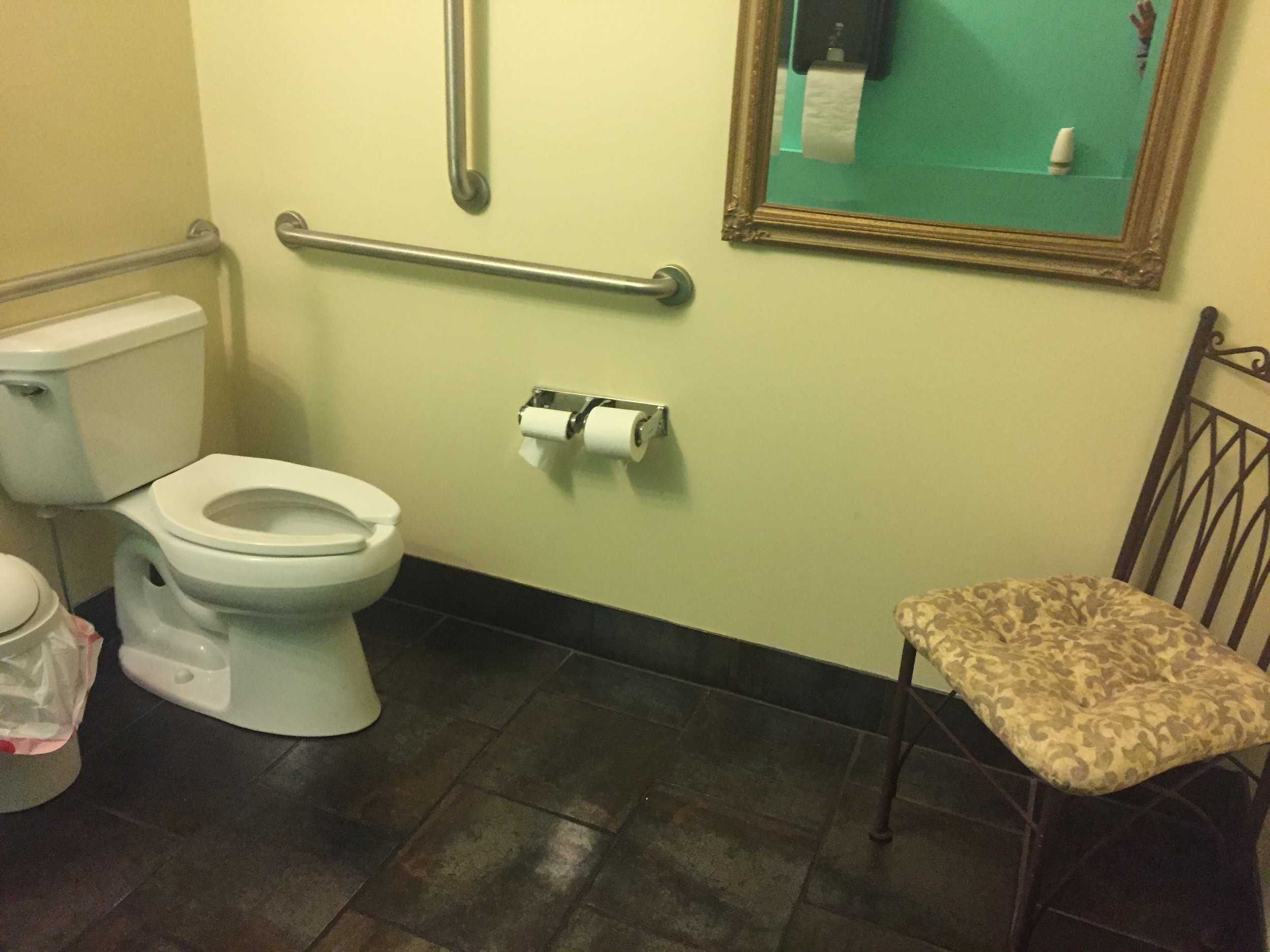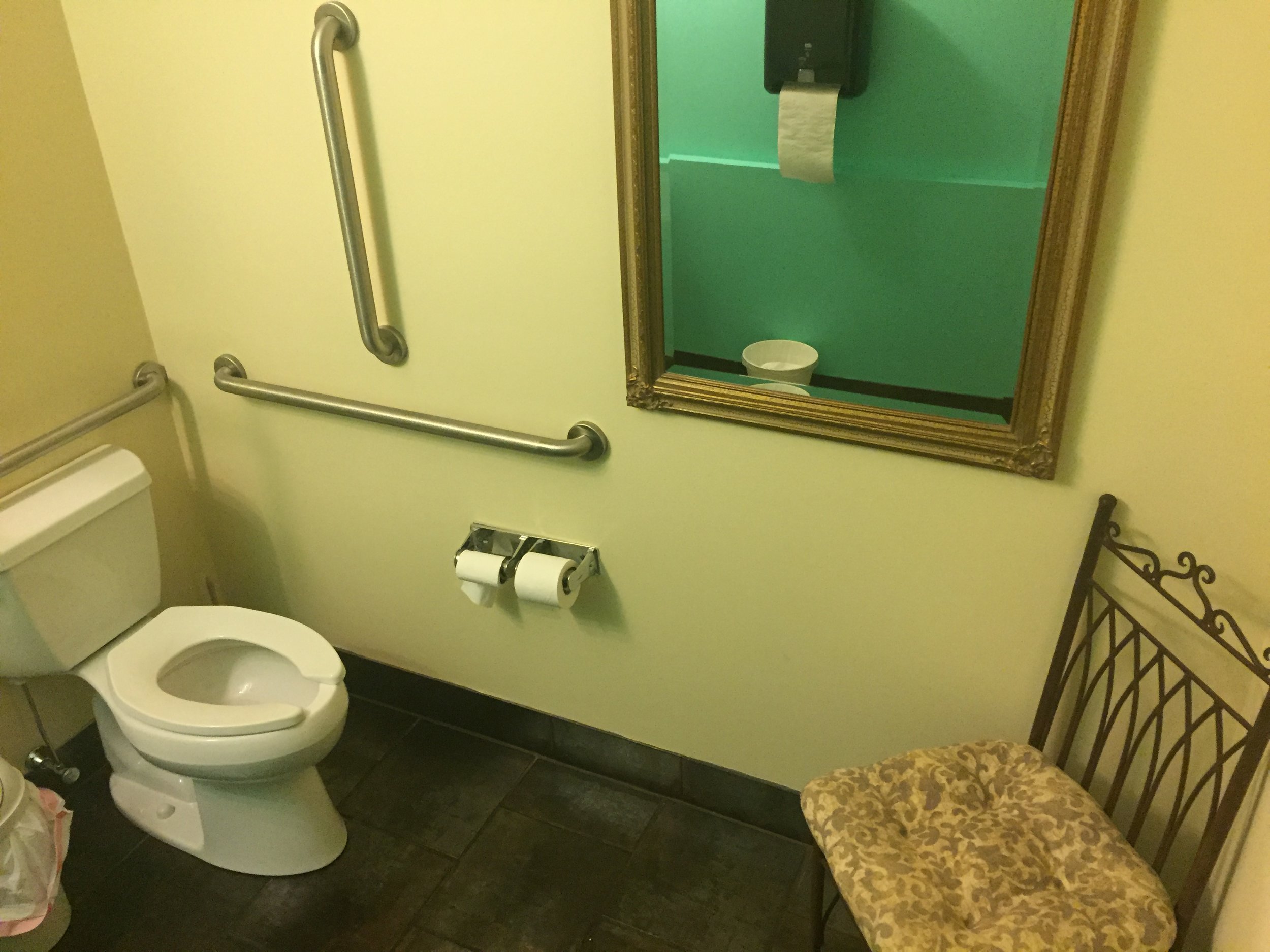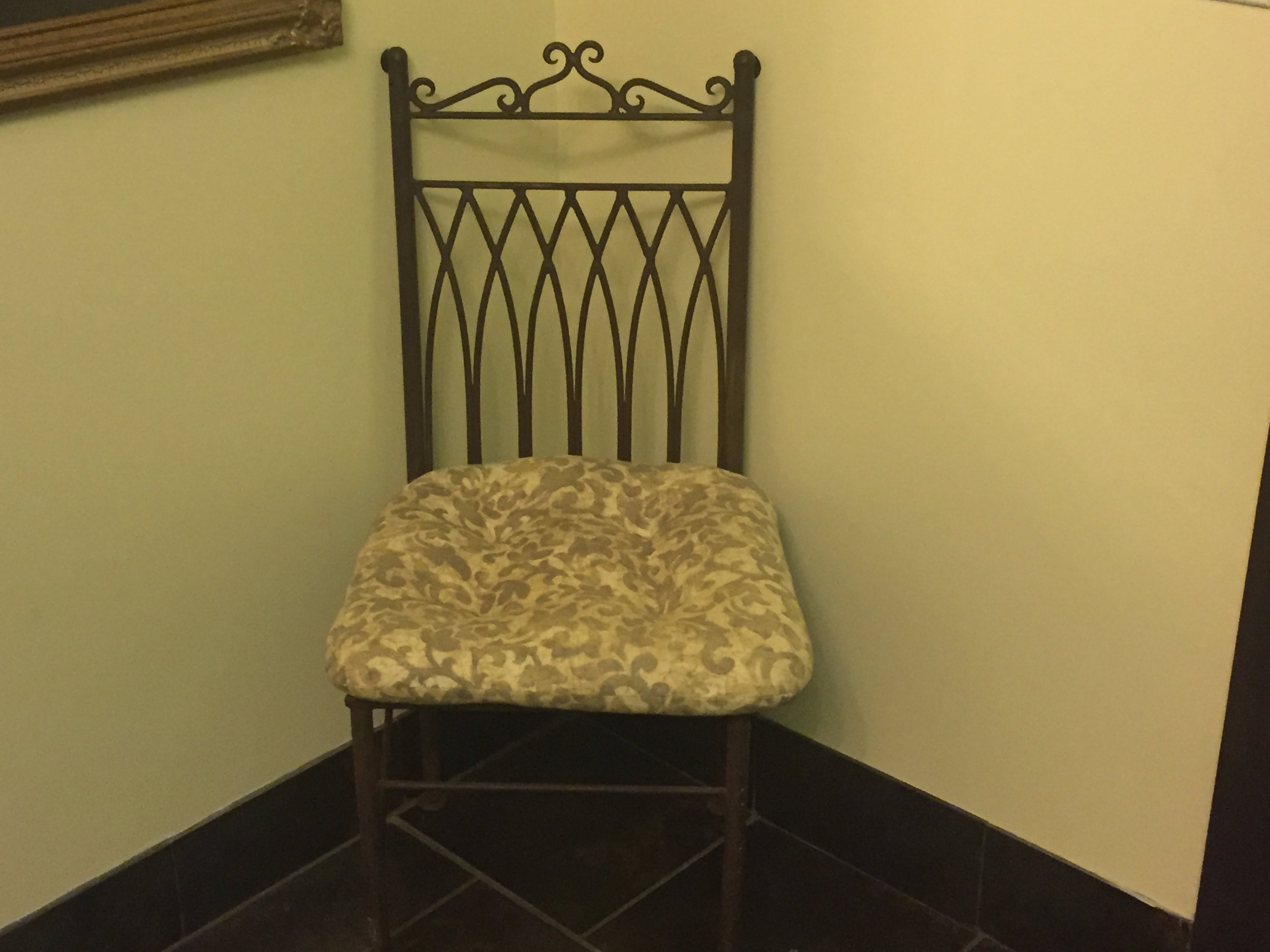The woman in front of me is having a problem. She's an old lady in the truest sense of the word. She's as crooked as a question mark and is holding a cane. She's ordered a "Big Breakfast Egg McMuffin" and received a Big Breakfast and an Egg McMuffin.
She's not happy.
She only wants the Egg McMuffin. She's added the words "big breakfast" to her order for reasons I cannot glean, but somehow, I know what has happened. Years of managing McDonald's restaurants makes the problem immediately clear to me.
I stand behind her and remain silent. I know that I inject myself into too many of these kinds of situations. Elysha has asked me to stand back and avoid conflict like this whenever possible. She worries about how people will react to my mouth. So I'm going to leave this to Janet, the employee who I see every day and know well.
Except that Janet is struggling to figure out the problem because the woman is yelling at her. Flailing her hands. Janet is frazzled by the sudden outburst of anger. She's unable to put two and two together.
I remain silent. I'm not going to involve myself. The woman is angry and treating my friend poorly, but my involvement will probably not go well.
The manager, who I also know, arrives and quickly identifies the problem. She explains the source of the confusion to the woman. She says that she will remove the Big Breakfast and refund the money. She grabs a scrap of paper to subtract the price of the Big Breakfast from the bill.
The woman shakes her hands violently and shouts, "Just give me my money!"
At last the issue is settled. The order is correct and the refund is complete. The woman moves off to prepare her coffee. I step forward and smile at Janet, who is still flustered. I wink. She smiles. She enters my order without me saying a word. I take my cup over to the soda station to pour.
The old woman is still there, stirring her coffee. I add ice to my cup and take a step closer to her to pour my Diet Coke.
The old woman turns to me and says, "These people are so stupid. How do you get this far in life being this stupid?"
I have done my best to remain uninvolved, but now she is speaking to me directly. Not only am I vigorously opposed to behind-the-back cruelty, but she is insulting people who I think of as friends. These are women who I see every day and exchange pleasantries with quite often. I feel like I must now say something. The woman has all but demanded a response.
Without missing a beat or considering my words, I say, "I think it's despicable when a person talks behind the backs of others. Despicable and disgusting. For the rest of my day, I'm going to tell every person I see about the despicable and disgusting thing that you just did."
And then she begins to cry.
This event took place in September. I asked my students what they thought of my actions. Most believed that my behavior was perfectly acceptable until I added the last sentence beginning with "For the rest of the day..."
"Over the line, Mr. Dicks," one girl said.
Many of my friends felt that my entire interaction was inappropriate. They suggested that it was not my place to impose my morals on this woman.
I reminded them that I did not interject myself into the conversation. She spoke to me.
That didn't matter for most.
Others argued that I was caustic and cruel to an older woman, and that I should've tempered my words because of her age.
I argued that this was agism.
None agreed.
Others argued that my words made no difference in the future behavior of this woman, so I caused needless pain and suffering for no result.
I suggested that this woman might think twice the next time she wants to criticize someone behind her back to a stranger.
Most disagreed.
Looking back on the incident with the advantage of time and perspective, I still believe that my actions were just. That old woman involved me in the situation after my attempts to remain silent. I simply spoke from the heart and said what I believed. I didn't consider her age a handicap to decency or discourse, and I genuinely believed - and still do - that our encounter might temper this woman's future acts of behind-the-back cruelty.
I tell this story today because of a response to a post on the ridiculous use of imperatives in argumentation. A friend on Facebook reminded me that "All that is necessary for evil to triumph is for good men to do nothing!"
I don't think that the woman was evil, but I also couldn't allow such condescension and cruelty to go unchecked when directly involved.
I wasn't happy that the woman began to cry, and it certainly made for an awkward pour of my Diet Coke and a hasty retreat, but I said what I thought needed to be said. It would've been easy to ignore the comment. Nod and move on. Even explain to the woman that I know the employees well and are always impressed by their professionalism and performance.
But after watching this woman shout and flail and condescend, I didn't think gentleness was in order. "If you're going to dish it out, you have to be able to take it" is an expression that has always rung true for me. I think it applied well in this situation, despite the tears.
Thoughts?























